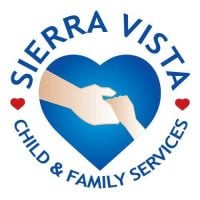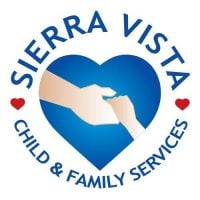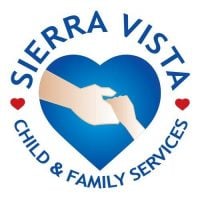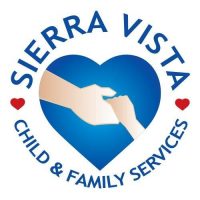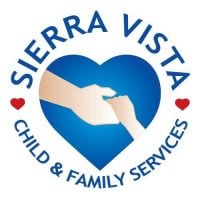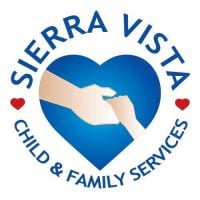Stanislaus County Behavioral Health - Recovery Center
Drug Rehab Center in Ceres, California
Stanislaus County Behavioral Health - Recovery Center is a comprehensive, accredited treatment facility that provides individualized care through evidence-based therapeutic models such as CBT, DBT, trauma therapy and relapse prevention to empower individuals on their journey to recovery from difficulties with alcoholism, mental health issues, drug addiction and substance abuse.
About Stanislaus County Behavioral Health - Recovery Center in California
Stanislaus County Behavioral Health - Recovery Center, situated in Ceres, California, is an outpatient facility that specializes in providing behavioral health care and mental health treatment to adults. They can also refer individuals to an alcohol or drug rehab center if needed.
• Comprehensive assessment: Clients undergo an initial evaluation to determine the most appropriate course of treatment.
• Diverse therapy options: Individual, group, and family therapy sessions are available, along with educational programming.
• Crisis support: A behavioral health crisis support line is accessible for individuals in need of immediate assistance.
The center accepts most insurance plans, including Magellan, TRICARE, Wellmark, HCSC, Blue Cross Blue Shield, ComPsych, Amerigroup, Beacon, Kaiser, Aetna, Anthem, and United Healthcare. However, out-of-network benefits may vary, so it's essential to verify coverage with your insurance provider before enrolling in treatment.
Stanislaus County Behavioral Health - Recovery Center offers treatment for a range of mental health and substance abuse issues, such as alcoholism, drug addiction, opioid addiction, and dual diagnosis. Their approach combines evidence-based treatments with the latest research and technology to support the recovery process.
Genders
Ages
Modality
Additional
Accreditations
State License
Conditions and Issues Treated
Rehabilitation, Medication, and Therapy – a combination of all three is most effective.
The most successful treatments for drug dependence or abuse have been those that include education and counseling and medication such as methadone or buprenorphine. The right drug abuse treatments need counseling, psychotherapy, and detoxification or medications to help with withdrawal symptoms.
Substance abuse can take many different forms, including the overuse or misuse of prescription drugs, unprescribed drugs, alcohol addiction, and drug addiction.
A combination of treatments is often needed to treat drug abuse issues effectively. In the case of drug abuse, there is no easy answer or one-size-fits-all cure.
While some drug addictions can be treated with counseling and support groups, many drug abusers also need medication to help them overcome their addiction. In other cases, drug abuse can lead to a medical problem and require medical treatment.
Treatment for drug addiction typically combines counseling and psychotherapy with medication and behavioral therapies. In some rare cases, hospitalization may also be required. All different treatments combined are the best way to help someone addicted to drugs, alcohol, or other substances.
Treatment for opioid addiction is best made with the help of medical professionals who are experienced in dealing with these types of drugs. This treatment can involve medications, exercise, behavioral therapy, and counseling sessions. It is important to note that the effectiveness of treatments for opioid addiction vary, so it is vital to research which treatment options are suitable for each individual.
Many people who struggle with opioid addiction need to attend specific programs like methadone , Suboxone or Vivitrol clinics.
These types of programs will provide the patient with legal, prescription medications that can help them overcome their cravings for illegal opioids like heroin or fentanyl . If the patient has a chronic condition like Hepatitis C, they must undergo treatment before they can begin taking these medications.
Individuals who are addicted to drugs and/or alcohol often have one or more co-occurring mental health disorders. Addressing both the addiction and the mental health problems at facilities like Stanislaus County Behavioral Health - Recovery Center can be very beneficial for these individuals.
Common mental health conditions that often co-occur with addiction include:
- Anxiety Disorders – People with drug and alcohol problems often suffer from anxiety disorders such as panic disorder, obsessive-compulsive disorder, social anxiety disorder, and generalized anxiety disorder.
- Depression – One of the most common mental illnesses co-occurring with addiction is major depressive disorder.
- Attention-deficit hyperactivity disorder (ADHD) – Many people with drug and alcohol problems also suffer from ADHD.
- Bipolar Disorder – People with bipolar disorder are more likely to suffer from drug and alcohol problems than the general population, and vice versa.
Levels of Care Offered
This center offers a variety of custom treatment tailored to individual recovery. Currently available are Detox, Dual-Diagnosis, Inpatient, Outpatient, Partial-Hospitalization, with additional therapies available as listed below.
Detox is the stage of recovery where the drugs or alcohol are entirely removed from your body. There are two different ways to detox, with medications and without. For many drugs and alcohol, the acute phase of detox can be completed in a number of days.
Inpatient recovery offers individual therapy, groups, and family therapy. The length of inpatient addiction treatment depends on the addict and their addiction. Inpatient rehab is a costly drug treatment, costing anywhere from $30k- to $60k. However, insurance often offers help in covering these costs.
Outpatient treatment can be considered the lowest intensity level of addiction treatment in Ceres, CA. It is ideal for early phase addiction or lower intensity addictions. Stanislaus County Behavioral Health - Recovery Center peer group support, 12-step programs, and individual counseling are likely to be involved.
A partial hospitalization program (PHP) is designed to help those in Ceres, CA with acute addiction symptoms. This means the person is treated in a hospital-like setting while still having some freedoms as an outpatient. Most PHPs like Stanislaus County Behavioral Health - Recovery Center require six hours of daily therapy and three days per week of group or individual counseling. If desired, they may sleep onsite or go home (but all participants are monitored more than any other type). These plans usually last one month but can be extended to six months, depending on your weekly time commitment!
Partial hospitalization programs are designed for people who need care but want to stay at home. Outpatient clinically supervised care allows people to participate in treatment while going about their daily lives without staying away from home for long periods.
The Partial Hospitalization Program requires you to be available for individual therapy sessions for a minimum of five days per week for twenty-four weeks. You will be seen for follow-up visits until the treatment is stopped.
Therapies & Programs
Individual therapy is ideal for addicts who want to focus on themselves. It can also be helpful for those whose withdrawal symptoms are exacerbated by the presence of other people.
Benefits of individual therapy are:
- Access to a personalized treatment plan that focuses on the individual needs of the addict
- More privacy during treatment sessions
- Better personal development through introspection
- Increased self-awareness regarding addictive tendencies in order to avoid relapse
- Greater potential for a long-term recovery plan
- Receiving professional advice and detox assistance from medical staff
Family therapy can help you and your family deal with old issues that may trigger substance abuse. The idea behind family therapy for drug addiction is that you are never fully healed from substance abuse until you’ve healed your relationship with your family, too. To get sober, you need to find a different way to cope with the pain in your life.
This is when a group of people in various stages of recovery meet up and discuss their experiences, triggers, successes, failures, and even alternative therapies! Unlike support groups where everyone already knows each other, group therapy is conducted along side outpatient or inpatient treatment at Stanislaus County Behavioral Health - Recovery Center.
Trauma therapy is a clinical process that helps individuals deal with mental stress often caused by traumatic events. The therapist helps the person identify, understand and work through the problem. This is done with the help of talking about it in group or one-on-one counseling sessions.
Therapists use relaxation, role-playing, art, and music to help the person open up about what is bothering them. Some examples include:
- Talking about the traumatic event and how it affected them.
- Helping those who have PTSD to deal with their nightmares and recurring memories.
- Working with individuals to resolve the issues triggering the stress, whether seeing someone who reminds them of what happened or feeling helpless.
The individual is also encouraged to help others that are struggling with similar problems. This often helps them feel empowered and gives them hope.
Trauma therapy is not for everyone; it is usually reserved for people who have recently experienced a traumatic event and struggle to get over it. It is generally done for children, teenage victims of sexual assault, and war veterans.
Those struggling with addiction can benefit from learning certain life skills. It is not as simple as quitting drinking or taking drugs and thinking that the hard part is over. Being sober means living a whole new way of life. Many recovering addicts have found that they need to develop talents like time management, organization, communication skills, socialization skills, and self-esteem to make their life in sobriety work, Stanislaus County Behavioral Health - Recovery Center is here to help with that.
Payment Options Accepted
For specific insurance or payment methods please contact us.
Is your insurance accepted?
Ask an expert, call (888) 674-0062
Additional Details
Specifics, location, and helpful extra information.
Ceres, California 95307 Phone Number(209) 541-2121 Meta DetailsUpdated April 15, 2024
Staff Verified
Stanislaus County Behavioral Health - Recovery Center Patient Reviews
There are no reviews yet. Be the first one to write one.
Ceres, California Addiction Information
More than 3 million of California's citizens are addicted to illegal drugs. Almost 800,000 people use hard drugs, almost 5 million use marijuana, and another 2.1 million abuse alcohol every year. Other substance abuse issues such as binge drinking and teen drug use are also common. Many illegal drugs such as cocaine, heroin, methamphetamine, and marijuana are smuggled into the state from Mexico.
Treatment in Nearby Cities
- Concord, CA (64.0 mi.)
- Santa Cruz, CA (73.0 mi.)
- Capistrano Beach, CA (341.1 mi.)
- Ontario, CA (307.1 mi.)
- Loomis, CA (85.4 mi.)
Centers near Stanislaus County Behavioral Health - Recovery Center
The facility name, logo and brand are the property and registered trademarks of Stanislaus County Behavioral Health - Recovery Center, and are being used for identification and informational purposes only. Use of these names, logos and brands shall not imply endorsement. RehabNow.org is not affiliated with or sponsored by Stanislaus County Behavioral Health - Recovery Center.


